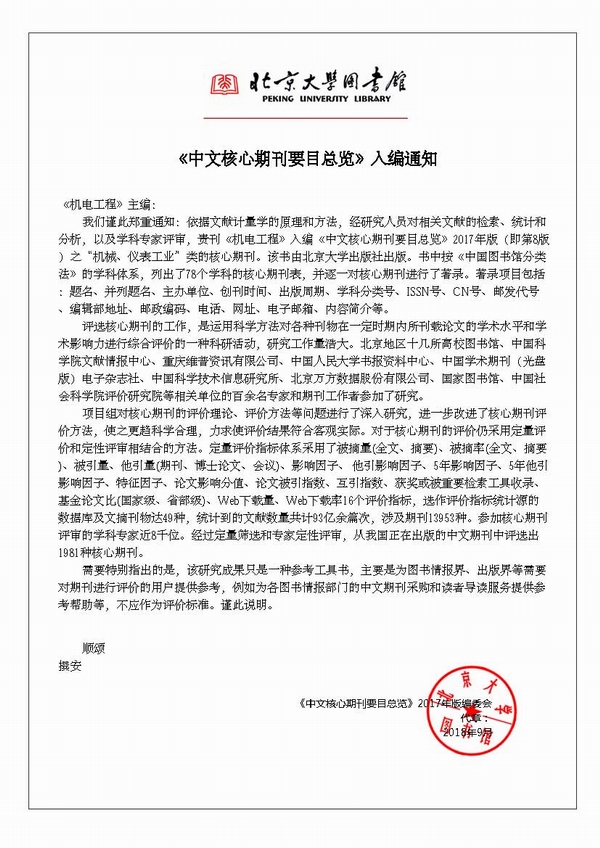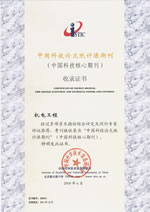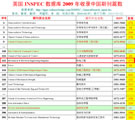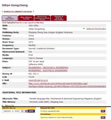
Founded in 1971 >
Chinese Sci-tech Core Periodicals >
British Science Abstracts (SA, INSPEC) Indexed Journals >
United States, Cambridge Scientific Abstract: Technology (CSA: T) Indexed Journals >
United States, Ulrich's Periodicals Directory(UPD)Indexed Journals >
United States, Cambridge Scientific Abstract: Natural Science (CSA: NS) Indexed Journals >
Poland ,Index of Copernicus(IC) Indexed Journals >
International Standard Serial Number:
ISSN 1001-4551
Sponsor:
Zhejiang University;
Zhejiang Machinery and Electrical Group
Edited by:
Editorial of Journal of Mechanical & Electrical Engineering
Chief Editor:
ZHAO Qun
Vice Chief Editor:
TANG ren-zhong,
LUO Xiang-yang
Tel:
86-571-87041360,87239525
Fax:
86-571-87239571
Add:
No.9 Gaoguannong,Daxue Road,Hangzhou,China
P.C:
310009
E-mail:
meem_contribute@163.com
WANG Zhong lin1, ZHANG Ning bin2
(1.Speedpro Robot Wuxi Co., Ltd., Wuxi 214000, China;2.School of Mechatronics Engineering, Shanghai Jiao Tong University, Shanghai 200072, China)
Abstract: In order to solve the problem of the dependence of the control on kinematic and performance analysis, this paper presented kinematic and performance analysis of a redundantly actuated 2URR 2RRU parallel manipulator (PM). First, the mobility analysis was carried out based on the screw theory. Through the vector method, inverse and forward kinematic position models were established, which furthermore were utilized to form the velocity Jacobian matrix of the PM. After numerical search, the enveloped reachable workspace was obtained. At last, the kinematic performance quantified by the local force/motion transmission index (LTI) of the PM was evaluated. The results show that the 2URR 2RRU PM has three degrees of freedom (DOFs), including two rotation DOFs and one translation DOF. Since the analytical forward position kinematics is out of our scope, the numerical solutions are calculated. The singularity analysis based on the velocity Jacobian matrix shows that the PM has no inverse kinematic singularity and combined singularity except the forward kinematic singularity. Besides, the range of the workspace along the y direction depends on the length of the tool tip. Finally, the LTI atlas shows that the PM with designed link dimensions is of good force/motion transmissibility, which lays the foundation for the optimization of the 2URR 2RRU PM.
Key words: parallel mechanism; kinematics; singularity analysis; workspace; LTI







